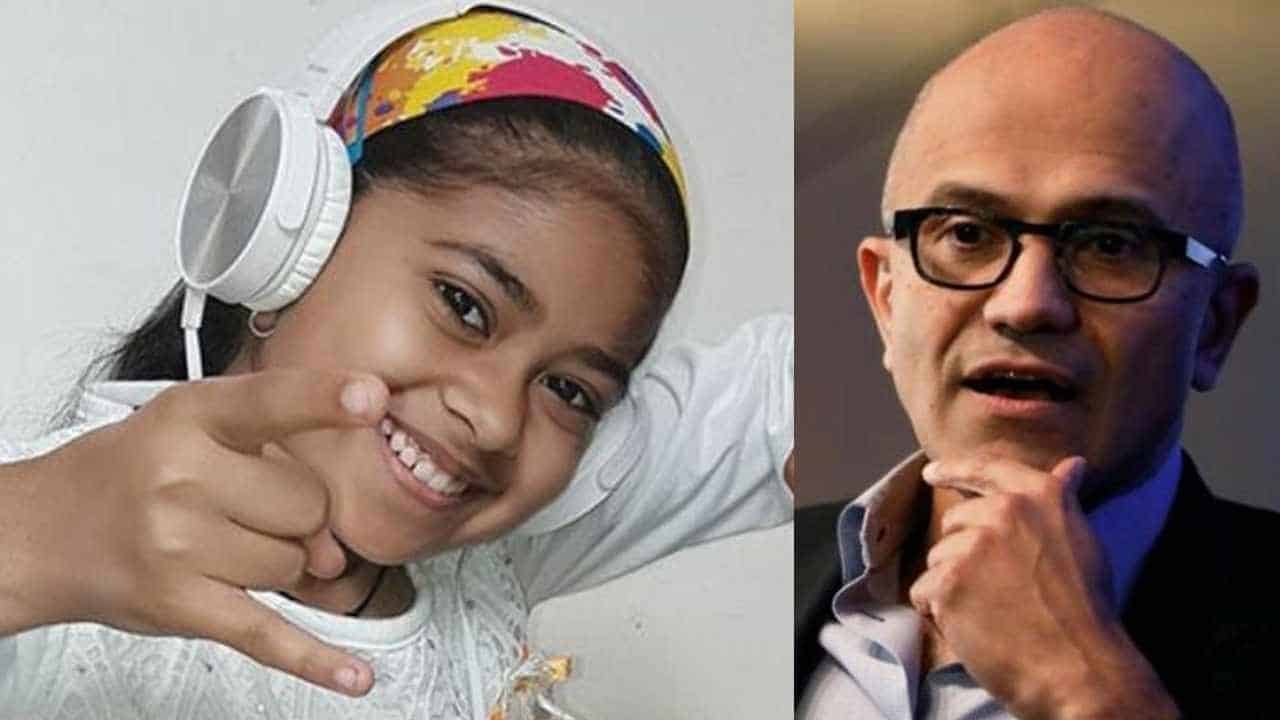New Delhi, Feb 26 (IANS) Namya Joshi, a seventh-grader from Sat Paul Mittal School in Ludhiana loves training teachers and has been a crusader for making learning fun through technology.
Joshi, 13, has been helping teachers — not only at her school but across the globe — convert classroom lessons into interactive Minecraft sessions. For her, Minecraft is a great platform and “if children do not like reading books, one can make them take interest in Minecraft”.
Namya who has conducted multiple Skype sessions for both teachers and students to initiate them into the use of Minecraft in classes, met Microsoft CEO Satya Nadella on stage at the ‘Young Innovators’ Summit’ in the capital on Tuesday, leaving the Indian-origin executive impressed to his core.
“We need to reformulate the relationship between technology and learning. It is very interesting to witness the way young innovators think today,” Nadella told the gathering.
“What excited and inspired me from my meetings with students was the quality of their ideas, the scope of their ambition, deep passion and deep empathy turning into action. This is truly transformative, and is how societies and economies move forward,” he added.
The ‘Young Innovators’ Summit’ brought together over 250 students and educators in Delhi NCR.
In conversation with Anant Maheshwari, President, Microsoft India, Nadella spoke about the role that technology will play in transforming the education ecosystem over the next decade, outlining the opportunity students have today to solve some of the world’s most pressing problems with technology.
For example, “OrganSecure” platform, built by Pratik Mohapatra, uses a sophisticated set of machine learning algorithms to quickly match organ donors with recipients, providing real-time updates to people in need of a transplant.
“While watching a web series that revolves around organ donation, I realised the pain and emotional trauma people go through when waiting for a transplant. I started digging deeper about the problem and spoke to doctors at leading hospitals in Bengaluru to comprehend the magnitude of the issue,” said Mohapatra.
A coding enthusiast, Mohapatra has been developing apps since he was 14.
Taking from their experience of living in the vicinity of New Delhi, which has one of the world’s worst air quality, Ishlok Vashistha and four of his friends decided to use technology to tackle the problem.
The team, comprising Ishlok Vashistha, Aakash Bhadana, Vasu Kaushik, Dipesh Narwat, and Bharat Sundal from Manav Rachna Institute of Research & Studies in Faridabad came up with Caeli, a smart anti-pollution face mask and portable nebuliser to help those with breathing ailments like asthma and other chronic respiratory diseases.
The mask and nebulizer are connected to a smartphone application via Bluetooth.
The Caeli mask features an air filtration system and an Air Quality Index (AQI) sensor that constantly monitors the quality of air, while the Caeli app controls the schedule of the drug dispensed from the nebulizer depending on the user’s prescription and pollution levels.
Their idea won the team the runners-up position at the recently-held Microsoft ‘2019 Imagine Cup World Championship’.
“I always think coding is like poetry; it’s just compact expression. I think coding can inspire you, in both liberal arts as well as in sciences, to really make a difference,” said Nadella.
